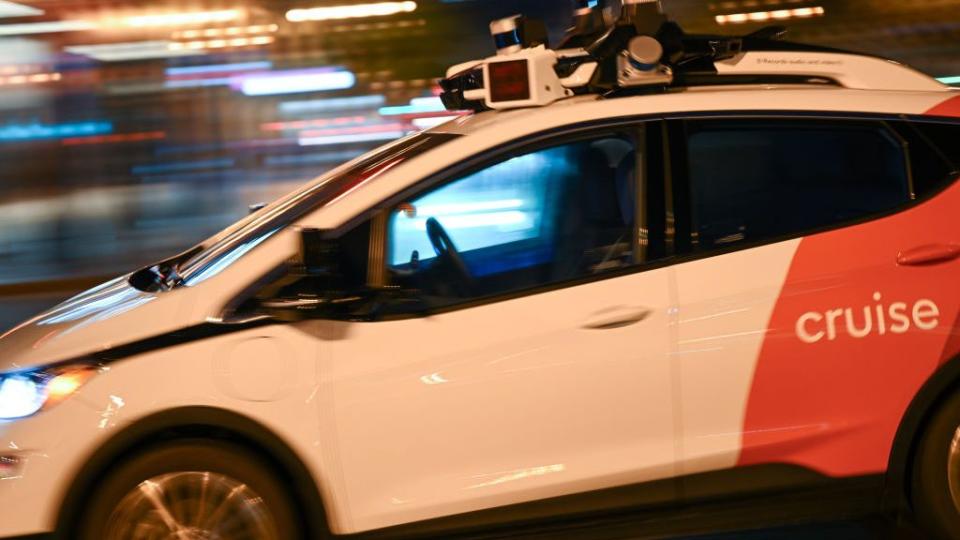GM Subsidiary Cruise Ordered to Halt Driverless Car Testing in California

The California Department of Motor Vehicles announced Tuesday it's revoked permits for driverless vehicle testing operated by the rideshare company, Cruise, following multiple incidents. While authorities did not cite any specific event that led to the suspension, run-ins with pedestrians have made headlines in recent months while the company was beta testing its self-driving cars in San Francisco.
The DMV cited the following codes as reasons for the suspension:
13 CCR §228.20 (b) (6) – Based upon the performance of the vehicles, the Department determines the manufacturer’s vehicles are not safe for the public’s operation.
13 CCR §228.20 (b) (3) – The manufacturer has misrepresented any information related to safety of the autonomous technology of its vehicles.
13 CCR §227.42 (b) (5) – Any act or omission of the manufacturer or one of its agents, employees, contractors, or designees which the department finds makes the conduct of autonomous vehicle testing on public roads by the manufacturer an unreasonable risk to the public.
13 CCR §227.42 (c) – The department shall immediately suspend or revoke the Manufacturer’s Testing Permit or a Manufacturer’s Testing Permit – Driverless Vehicles if a manufacturer is engaging in a practice in such a manner that immediate suspension is required for the safety of persons on a public road.
Cruise has been under state and federal investigation since October 2, when one of its autonomous vehicles – sometimes referred to as “robotaxis” – was unable to stop after a pedestrian was knocked to the ground by another, human-driving car. CNN reported that the robotaxi rolled over the woman, injuring her critically, and that she had to be extracted from under the car with a “jaws of life” hydraulic rescue tool.
"Public safety remains the California DMV’s top priority, and the department’s autonomous vehicle regulations provide a framework to facilitate the safe testing and deployment of this technology on California public roads," the DMV said in a statement. "When there is an unreasonable risk to public safety, the DMV can immediately suspend or revoke permits. There is no set time for a suspension."
In September, a Cruise robotaxi struck and then ran over another woman, trapping her under the car for several minutes, the Washington Post reported. She survived after being rescued by firefighters and transported to the hospital.
Cruise responded to the California suspension on X, stating that it would comply, “pausing” its autonomous vehicle operations in San Francisco and that it had proactively shared relevant information with California authorities.
(1/6) We learned today at 10:30 am PT of the California DMV’s suspension of our driverless permits. As a result, we will be pausing operations of our driverless AVs in San Francisco. https://t.co/A5HAV2WUv7
— cruise (@Cruise) October 24, 2023
Cruise, founded in 2013, was bought by General Motors in 2016. The company is also getting heat from local governments in Texas concerning its driverless cars in cities there. Austin news station, KXAN, reported last week that the city has received more than 40 complaints about self-driving vehicles since July. All but one of those complaints were about Cruise’s vehicles.
While Cruise is not the only driverless ride-hailing company operating in Austin, KXAN said, it does account for the vast majority of complaints. The complaints range from blocking traffic lanes to collisions and almost hitting an ambulance. The Texas Tribune reported one complaint in which a Cruise vehicle actually “left the scene of the accident without stopping” after hitting another car.
Houston Public Media reported that the National Highway Traffic Safety Administration is looking into reports saying their vehicles allegedly injured pedestrians on at least two separate occasions. Although Austin and Houston have recorded complaints about Cruise’s self-driving cars, the city does not actually have the authority to rein in Cruise. In Texas, regulating autonomous vehicles falls under state law.
Besides San Francisco, Austin, and Houston, Cruise has also been beta testing its self-driving cars in Phoenix, the Denton Record-Chronicle reported. It also reported that the company plans to launch in Dallas before the end of the year.
In July, Road & Track reported a social media trend where people filmed self-driving cars disabled by placing traffic cones on their hoods, highlighting the potential dangers of having no human to override its controls when they are flummoxed. R&T also reported that after a collision with a firetruck, the State of California asked Cruise to cut back on its driverless cars in the state until an investigation into the crash could be completed.
In a recent blog post, Cruise said it had improved “technology and operations to ensure greater safety and reliability” for its autonomous vehicles. In particular, the company said it upgraded its systems for detecting and responding to emergency vehicles, a main driver of collisions and complaints.
You Might Also Like

 Yahoo Autos
Yahoo Autos 